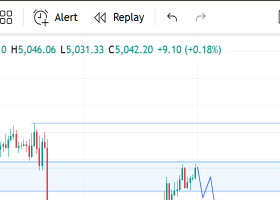
BoE Says Uncertainty Associated with EU Referendum Weighing on Activity
BoE Says Uncertainty Associated with EU Referendum Weighing on Activity
Activity growth slowed in Q1 and a further deceleration is expected in
Q2 and according to the BoE, “there are increasing signs that
uncertainty associated with the EU referendum has begun to weigh on
activity.”
According to the monetary policy summary, the most significant risks to
the MPC’s forecast concern the referendum. A vote to leave the EU could
materially alter the outlook for output and inflation, and therefore the
appropriate setting of monetary policy, said the BoE.
"Households could defer consumption and firms delay investment, lowering
labour demand and causing unemployment to rise. At the same time,
supply growth is likely to be lower over the forecast period, reflecting
slower capital accumulation and the need to reallocate resources.
Sterling is also likely to depreciate further, perhaps sharply.
This combination of influences on demand, supply and the exchange rate
could lead to a materially lower path for growth and a notably higher
path for inflation than in the central projections set out in the May
Inflation Report. In such circumstances, the MPC would face a trade-off
between stabilising inflation on the one hand and output and employment
on the other. The implications for the direction of monetary
policy will depend on the relative magnitudes of the demand, supply and
exchange rate effects. Whatever the outcome of the referendum
and its consequences, the MPC will take whatever action is needed to
ensure that inflation expectations remain well anchored and inflation
returns to the target over the appropriate horizon.”
![]()


